View all blog posts with the “educator” tag in them.
It is an educator’s goal to get students excited and inspired in the topic they are teaching. From a student’s perspective, STEM classes are not easy to learn by any means, so help them out by making class more exciting by doing awesome demonstrations in class and offering extracurricular activities to make you the best STEM educator, and the student’s favorite teacher!
Extracurricular Activities
The students who truly are interested in STEM will seek an extracurricular activity to get more involved and learn more about STEM. Most educators cannot get every one of their students interested in what they are teaching, but in an extracurricular activity, you will have the students who not only like what you teach, but they are eager to learn. Here are several different extracurricular activities for different age groups.
All Ages:
The FIRST (For Inspiration and Recognition in Science and Technology) is a world-wide program for students as young as elementary, to as old as high school. Elementary students will solve real-world problems with Legos (Jr. FLL), middle school students will build Lego robots to do a specific challenge (FLL), middle school students also have the option to build VEX robots (FTC), high school students get to build larger (six feet tall, 120 lbs) robots (FRC).
Elementary School:
The Elementary Science Olympiad
The Elementary Science Olympiad (ESO) events take advantage of the natural curiosity of each child and allow for in-depth hands-on experiences. These programs are designed to utilize ordinary classroom and household supplies and materials. There are nearly 200 ESO events contained in the two Science Olympiad manuals currently for sale, so you can run programs for years out of the same guide.
The Math Olympiad Program is a program to encourage students to excel in mathematics. This competition is 5 contests for 5 months to test how well students understand math.
Middle School:
Future City
The Future City Competition is a national, project-based learning experience where students in 6th, 7th, and 8th grade imagine, design, and build cities of the future.
The U.S. Department of Energy (DOE) National Science Bowl® is a nationwide academic competition that tests students’ knowledge in all areas of science. High school and middle school students are quizzed in a fast paced question-and-answer format similar to Jeopardy. Competing teams from diverse backgrounds are comprised of four students, one alternate, and a teacher who serves as an advisor and coach.
The NASA Space Settlement Contest is a contest for students to develop space settlement designs and related materials, in oter words, develop ways that we can live in space. small teams of two to six, and large teams of seven or more (often whole classrooms with teacher leadership) may enter.
MATHCOUNTS Competition Program
The MATHCOUNTS Competition Program provides the extra incentive and the perfect atmosphere for students to push themselves to achieve more in mathematics. Consisting of fun and creative problems that promote critical-thinking and problem-solving skills, the MATHCOUNTS competitions have written and oral rounds, as well as individual and team components.
The Math Olympiad Program is a program to encourage students to excel in mathematics. This competition is 5 contests for 5 months to test how well students understand math.
The Science Olympiad offers annual competitions (Regional, State, and National) for Middle and High School students who have the opportunity to collaborate on a number of project based/real world challenges.
High School:
The BEST (Boosting Engineering, Science, and Technology) competition is similar to the FIRST FRC (high school) competition, where high school students build a large robot designed to do a specific time, working alongside professional engineers as mentors.
The U.S. Department of Energy (DOE) National Science Bowl® is a nationwide academic competition that tests students’ knowledge in all areas of science. High school and middle school students are quizzed in a fast paced question-and-answer format similar to Jeopardy. Competing teams from diverse backgrounds are comprised of four students, one alternate, and a teacher who serves as an advisor and coach.
The Real World Design Challenge
The Real World Design Challenge (RWDC) is an annual competition that provides the opportunity to work on real world engineering challenges in a team environment. Each year, student teams will be asked to address a challenge that confronts our nation’s leading industries. Students will utilize professional engineering software to develop their solutions and will also generate presentations that convincingly demonstrate the value of their solutions.
The NASA Space Settlement Contest is a contest for students to develop space settlement designs and related materials, in oter words, develop ways that we can live in space. small teams of two to six, and large teams of seven or more (often whole classrooms with teacher leadership) may enter.
The Science Olympiad offers annual competitions (Regional, State, and National) for Middle and High School students who have the opportunity to collaborate on a number of project based/real world challenges.
Lesson Plans
Every educator could use some lesson plans. Lesson plans for every subject can be found in the resources below.
This website has information about the human body as well as lesson plans, games, and webquests! Suggested by a teacher, this is an excellent website to get students engaged in learning about the human body.
TryEngineering offers a variety of lesson plans that align with education standards to allow teachers and students to apply engineering principles in the classroom.
National Math + Science Initiative
These free resources for our teachers provide information about the Common Core State Standards (CCSS) and Partnership for Assessment of Readiness for College and Careers (PARCC) assessments.
A-Z List of NASA Educational Publications
This resource isn’t sorted by grade level, but who doesn’t love space? Great resources for every age group.
Free Software
Want some free software for your classroom? A lot of engineering software is available for free for educators and students. Please leave comments for more software for this category!
-
Auto Desk (CAD)
Imagine, design, and create a better world with help from Autodesk Education. Get free access to the software used to make the games, movies, buildings, and products that inspire you.
For K-12 educators, and students K-college, PTC offers free educator/student software.
SolidWorks offers the best suite of tools for engineering design, documentation, simulation, and sustainable design in one easy-to-learn software package.
Classroom Resources
These resources are just a bunch of cool websites that can be used to explain just about anything you’re doing in the classroom with a video or a cool image of an experiment. Some of these resources are blogs, which, as a teacher, you should be following to find cool stuff to share with your students.
-
Engineering Games and Projects from Titlemax
This website has a list of a bunch of different games and projects broken out by engineering discipline.
Project Lead the Way
Project Lead the Way (PLTW) is a resource for education curricular programs used in middle and high schools. There are a lot of benefits to PLTW, just check out this post about them.
Science
This websites helps students explore different science things through various labs. They even have specific resources for the educators.
Howard Hughes Medical Institute
This is a neat interactive website for searching a topic, a grade level, or a keyword and get cool science material.
This is just a list of neat science links
Technology
I think I want to explain this since it sounds like a really bad website. Life Hacker is a technology blog that focuses on taking stuff apart, and how to do various things on your computer, e.g. computer hacks.
Gizmodo is a very interesting technology blog. It’s one of the only (excluding this one and a few others) that I go to on a regular basis.
This is a website about current technology in the news
This is another blog that focuses on technology in the news
Engineering
A Sightseer’s Guide to Engineering
Pick your state and see current engineering projects happening right now!
Tell your kids some fun facts about engineering. Maybe tell them one of these each day to keep them motivated and bring out their inner engineer!
Greatest Engineering Achievements in the 20th Century
This is a neat website that focuses on all of the cool engineering things that were created in the 20th century.
Mathematics
Maryville University Business and Math Games
Maryville University has a great resource with a bunch of business and math games on it. The games are for all ages, your students might even forget that their learning while they’re having so much fun.
Home School Math Games Resource
One of the ways you can get interested in math at home is with educational games. These may be played online or on your living room floor. Take some time to check out this list of math games and resources. Some are online games, while others are instructions for creating math activities at home.
The A+ Student’s Guide to Math
Some students don’t enjoy math, but the reality is that math is used in every day life. Have you ever wondered how you can you get students or child more interested in math?
AAA Math
AAA Math features a comprehensive set of interactive arithmetic lessons.
Math Is Fun
Math Is Fun has a ton of resources for not only teachers, but also for students, pass this along to your students too!
American Mathematical Society
ASM aims to support educators teaching math
Other Resources
- Request Speakers
Request a speaker from NASA’s Speakers Bureau to talk to your class.
NASA will continue the Agency’s tradition of investing in the Nation’s education programs and supporting the country’s educators who play a key role in preparing, inspiring, exciting, encouraging, and nurturing the young minds of today who will be the workforce of tomorrow.
No Boundaries helps students explore careers in science, technology, engineering and math (STEM), while learning about NASA
Engage your students in the wonders of space as they learn about spacesuits and spacewalks.
USA Today Education. The Consortium for Entrepreneurship Education’s mission is to incorporate entrepreneurship education within all disciplines, to infuse students with the entrepreneurial mindset, and encourage our members to work together to create educational opportunities to meet the demands of a global economy. We believe that entrepreneurs are not “born”, but rather they “become” through the experiences of their lives.
Visions of Exploration provides educators with Science, Technology, Engineering and Math curriculum resources designed to enhance students’ reading, writing and comprehension skills.
USA TODAY Education and Lockheed Martin have teamed together to develop a program designed to strengthen students’ skills in science, technology, engineering and mathematics (STEM). The program, I^2 – Inspiring Innovation, is designed to provide USA TODAY newspapers and supporting educational lessons to 4th through 12th grade classrooms nationwide. In addition, employees from Lockheed Martin will participate as mentors in this program as part of their work with students in local schools.
Designed for K–12 students of all interest, skill and ability levels, ExploraVision encourages kids to create and explore a vision of future technology by combining their imaginations with the tools of science. All inventions and innovations result from creative thinking and problem solving. That’s what ExploraVision is all about.
The Team America Rocketry Challenge (TARC) is the world’s largest rocket contest, sponsored by the Aerospace Industries Association (AIA) and the National Association of Rocketry (NAR).
Approximately 7,000 students from across the nation compete in TARC each year. Teams design, build and fly a model rocket that reaches a specific altitude and duration determined by a set of rules developed each year. The contest is designed to encourage students to study math and science and pursue careers in aerospace.
Project Lead The Way (PLTW) prepares students to be the most innovative and productive leaders in Science, Technology, Engineering, and Mathematics (STEM) and to make meaningful, pioneering contributions to our world.
PLTW partners with middle schools and high schools to provide a rigorous, relevant STEM education. Through an engaging, hands-on curriculum, PLTW encourages the development of problem-solving skills, critical thinking, creative and innovative reasoning, and a love of learning.
NASA Field Center Educator Resource Centers
A list of contacts for NASA Field Center Educator Resource Centers
Windows to the Universe is a user-friendly learning system covering the Earth and Space sciences for use by the general public.
The Minority-Disability (MIND) Alliance in Science, Technology, Engineering, and Mathematics (STEM) is composed of Hunter College, City University of New York and Southern University, Baton Rouge, Louisiana. The MIND Alliance brings together expertise, experience, and considerable institutional, programmatic, and personnel resources of two minority institutions of higher education to provide best practice educational and career development services to students with disabilities from racial and ethnic minority backgrounds.
Enter the Firing Room is intended to inspire and motivate middle school students to pursue careers in Science, Technology, Engineering, and Mathematics by providing a virtual tour of the Kennedy Space Center (KSC) Firing Room.
Welcome to the home of the STEM Transitions initiative, led by the Center for Occupational Research and Development (CORD). With funding from the U.S. Department of Education Office of Vocational and Adult Education and under cooperative agreement with the League for Innovation in the Community College, the project builds on the work of the College and Career Transitions Initiative. At its core are six Science, Technology, Engineering, and Mathematics (STEM) career clusters that have provided the context for instructional materials demonstrating the convergence of academic and technical content at the community college level.
The Infinity Project – a partnership between Texas Instruments and the SMU School of Engineering – is a national program that makes it easy for students and teachers to connect with the creativity underlying modern technology and engineering. The innovative Infinity curriculum is a practical, hands-on approach to understand the relevance of math, science, and engineering in the information era.
Contact information for National Space Grant Directors
- STEMconnector
A great resource for STEM statistics and other great information about how to get students involved!
Do you know of a resource that we don’t? Let us know and we’ll add it to the site!



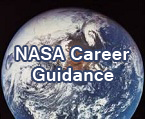
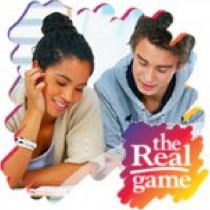
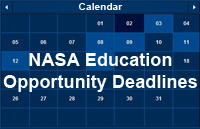
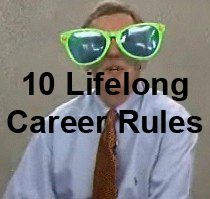
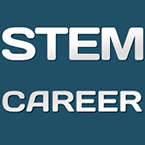
Comments are closed.